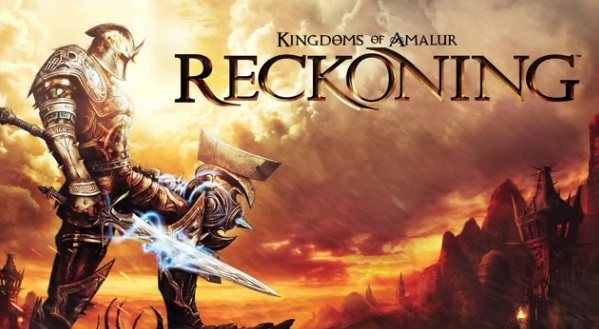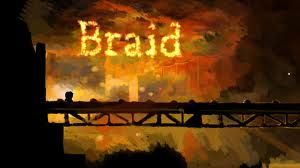What Does the closing of 38 Studios REALLY mean?

As most gamers have heard, another studio has gone the way of the dodo. 38 Studios, founded by MLB pitcher Curt Shilling and enlisting talents such as Todd MacFarlane and R.A. Salvatore, has closed amid rumours of financial failure.
While no one knows the full story, and in all likelihood no one outside of the studio ever will, it seems like a combination of bad business decisions and an overly ambitious business model took out the young studio, adding it to the list of “might-have-beens” in the annals of gaming history.
I will fully admit that I love their (only) game, Kingdoms of Amalur: Reckoning. I heard about it like I assume a lot of gamers did, by their cross-promotion with fellow EA published Mass Effect 3. I played the demo mostly because of the free bonuses I would received for Mass Effect, and to check out a game that had been designed under the guidance of its executive art director: famed Spawn creator, and one of my favourite comic book artists ever, Todd MacFarlane.

Once I played it, though, I was hooked. I’ve easily spent the past two months or so wrapped up in the wonderful fantasy world of Amalur, and the easy, free flowing combat system they created. While it has its share of graphics hiccups and weird bugs, it’s still at the very least a fun game, and easily leads into the planned MMO and sequel that 38 was working on.
“Was” being the key word. After news reports started coming out about the studio’s financial woes, they officially laid off their entire staff, effectively closing its doors, and taking Big Huge Games, a subsidiary studio they had acquired form THQ, with them.
Now, the first thing that went through my mind was the fact that this was a lot, and I mean A LOT of people out of jobs. Obviously, Shilling, Salvatore, and MacFarlane are fine, but what about all the designers, programmers, editors, etc.
This is where the gaming community really stepped up, and I admit I was actually rather touched and impressed. Both Bioware and Epic Games announced intentions to hire either some of the displaced employees, or, in Epic’s case, start a new division using the stable of Big Huge Games developers.
Now, heartwarming portion story aside, I wanted to look into this closure a little bit more. Obviously, I’m not an investigative reporter trying to get the scoop on what really happened, but I do want to see what this means for the gaming community as a whole.
It’s no secret that we are living in a golden age of indie developers. Studios like Mojang are proof that amazing things can be done without any corporate support. Crowdfunding for projects is becoming more and more common, and with the announcement of Unreal engine 4 coming out, some truly amazing things will be done by people sitting in their basements with a single computer and a dream.
But what does this mean for the industry? Are the days of the big-time studios over? With game developers able to appear from nowhere with good quality product, usually at a cheaper price, are the AAA title like Elder Scrolls now an endangered species?
 What? Say it isn’t so!
What? Say it isn’t so!
First off, the studio side of the equation: it is my belief that the big studios that are around now (Bethesda, Bioware, Bungie, 343, Netherrealm, etc.) aren’t going away any time soon. Partly because most of them are subsidiaries of larger corporations (EA, Microsoft, Warner Brothers, etc.) so that they can survive one failed game or big delay, but mostly because they already have a reputation, and credibility. I will, for the most part, buy any game from one of those studios I mentioned because it’s put out by that studio, and they have a track record of excellent games. Maybe that makes me a mindless sheep, but I’ve learned to trust those studios, and so their games will always get the benefit of the doubt from me.
Of course, the newer studios coming out are also getting that kind of reputation. Is there any gamer out there who isn’t salivating over their controllers (or keyboards) for the next Mojang release?
 Oh yeah, there’s this guy too…
Oh yeah, there’s this guy too…
Of course, as indie studios continue to crop up and put out great product, the larger studios tend to want to do business with them, and that usually means buying them, or buying a majority share. Epic Games bought a majority of People Can Fly, and back in the day, Mircrosoft bought a hot young PC game developer by the name of Bungie.
It’s not necessarily a bad thing at all, as the big name studios have access to marketing, publishing, and financial avenues that wouldn’t be open to the smaller studios. If the two studios work well together, and can benefit each other, then more power to them.
On to the actual game side: While you would initially believe that, as indie companies crop up with increasing frequency, that the games they produce would tend to remain smaller, shorter experiences. Especially as a lot of indie studios are coming out as single-person enterprises, and having one person develop an entire game on their own is pretty daunting.
Personally, I see them starting to trend towards the larger, AAA type games that most gamers are used to. As more and more resources are made available to developers (like the above mentioned Unreal engine 4 as well as increasingly affordable high-powered hardware), it just gets that much easier for the smaller companies to put together some amazing things.
And they’ll be able to do it faster and with less interference than some of the more corporate studios, as they can create the game and put it up on their own website for free as soon as it’s done, instead of going through committees regarding the story, art direction, and gameplay. After that, they have to check with legal, then gear up the marketing machine, produce the packaging and discs, ship them to stores, etc. A smaller company has a lot fewer moving parts, so it’s a lot easier for them to put the product out there.
I think the tale of 38 Studios will go down as a cautionary tale to the indie developers out there that they have to be smart about how they run their businesses: be careful about where you get your funding, and don’t try to grow faster than they’re ready to. While 38 put out a game that was pleasantly received, hindsight tells me that perhaps they should have done the first KoA game, then the sequel, THEN the MMO, instead of working on all three at the same time.
While the future of gaming is still a vague and uncertain, I don’t see either big-time studios or big-time games going away anytime soon, though the nature of each may end up changing a bit.



